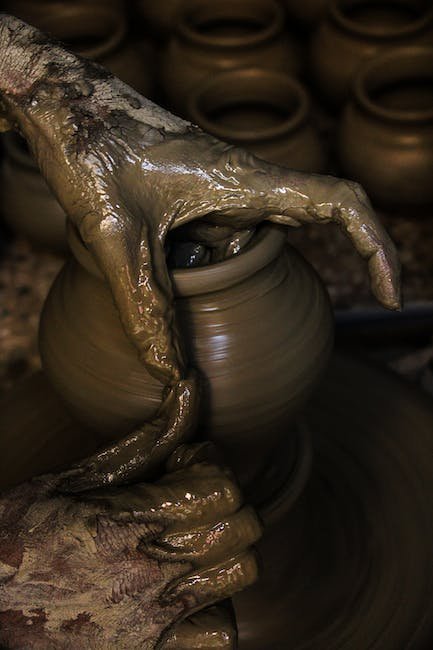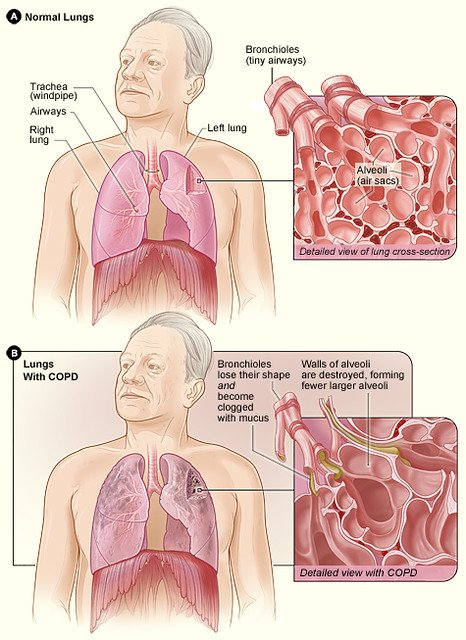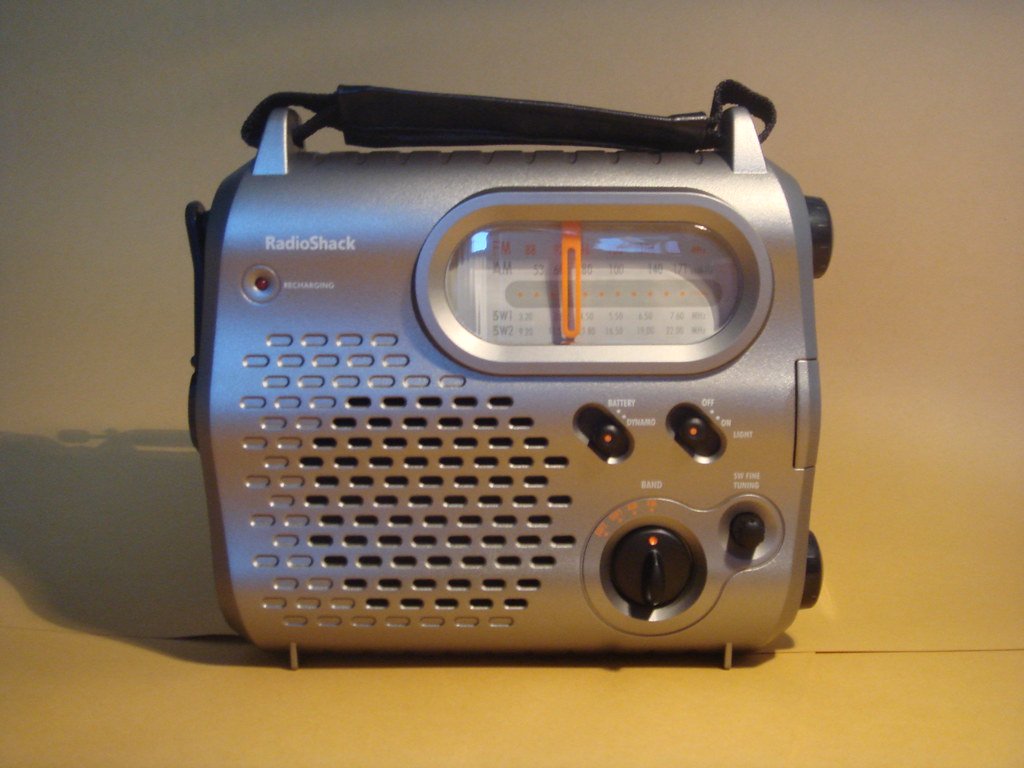Now Reading: The Importance of Childbirth Skills in Survival Medicine
-
01
The Importance of Childbirth Skills in Survival Medicine

The Importance of Childbirth Skills in Survival Medicine
Giving birth is a profound and awe-inspiring experience that encapsulates both the miracle of life and the strength of the human spirit. In the realm of survival medicine, where resources are scarce and traditional healthcare facilities may be nonexistent, childbirth skills become an invaluable tool for ensuring the well-being of both mother and child. As we delve into the intricacies of this vital aspect of survival medicine, one thing becomes abundantly clear: the ability to navigate the complexities of childbirth is not just a luxury, but a necessity in situations where emergency medical care is not readily available. Whether it be a remote wilderness expedition or a post-apocalyptic scenario, understanding the importance of childbirth skills in survival medicine could mean the difference between life and death in the most critical of circumstances.
Table of Contents
- The Miraculous Art of Childbirth in Survival Medicine
- Mastering Childbirth Skills: A Crucial Element of Survival Medicine
- The Benefits of Acquiring Childbirth Skills in Emergency Situations
- Practical Recommendations for Developing Childbirth Skills in Survival Medicine
- The Role of Childbirth Skills: Ensuring Health and Safety in Challenging Environments
- Q&A
- The Conclusion

The Miraculous Art of Childbirth in Survival Medicine
Childbirth is a powerful testament to the resilience and strength of the human body, and in the realm of survival medicine, it takes on an even greater significance. In dire situations where access to modern medical facilities and resources is limited or non-existent, the art of childbirth becomes a true miracle. It is a delicate dance between the primal instinct of a mother and the knowledge and skills of those attending to her.
Survival medicine practitioners must be well-prepared and equipped to handle the various stages of childbirth, from prenatal care to postpartum support. Here are some essential aspects to consider:
- Prenatal Care: Ensuring the health and well-being of both the mother and the unborn child is vital. Regular check-ups, proper nutrition, and maintaining a safe environment are crucial during this phase.
- Delivery Process: From contractions to the delivery itself, a skilled survival medic must be ready to assist and provide comfort to the mother. Understanding the signs of impending labor, proper positioning, and pain management techniques are key.
- Emergency Situations: Despite a skilled approach, unexpected complications can arise. Being prepared for emergencies such as breech births, umbilical cord complications, or excessive bleeding can make all the difference.
- Postpartum Care: The care doesn’t end with the delivery. Supporting the mother through the recovery phase, guiding her in breastfeeding, and monitoring her mental and physical health are critical for a successful outcome.
is a testament to the strength and courage of both the mother and the healer. It is a remarkable journey that reminds us of the profound beauty and resilience found in the most challenging of circumstances.

Mastering Childbirth Skills: A Crucial Element of Survival Medicine
Childbirth is a miraculous moment in every mother’s life and having the necessary skills to handle it is crucial, especially in survival medicine scenarios. Knowing how to navigate through the challenges of childbirth can make all the difference in the world. Here are some essential skills that every aspiring survival medic should master:
- Emergency Delivery: Being prepared for unexpected situations is key. Understanding the steps involved in an emergency delivery can help bring a new life safely into the world. From assessing the mother’s condition to assisting with the baby’s first breath, being able to handle high-pressure situations is vital.
- Managing Complications: While childbirth is typically a natural process, complications can arise. The ability to identify potential issues, such as breech births or umbilical cord entanglement, and knowing how to respond effectively can be life-saving. Understanding the signs and symptoms of complications allows survival medics to intervene promptly and reduce risks.
- Pain Management: Childbirth is often accompanied by intense pain. Learning techniques to help manage pain, such as breathing exercises, relaxation techniques, or the use of basic pain relief medications, can provide much-needed comfort to the mother throughout the process.
- Postpartum Care: The journey doesn’t end with the delivery itself. Adequate postpartum care is crucial for both the mother and newborn’s well-being. Survival medics must be knowledgeable in providing immediate care, including monitoring vital signs and ensuring a safe environment for mother and baby.
Mastering these childbirth skills ensures that survival medics can support mothers during one of life’s most vulnerable moments, providing medical assistance and bringing new lives safely into the world.

The Benefits of Acquiring Childbirth Skills in Emergency Situations
When emergency situations arise, having the knowledge and skills to assist with childbirth can make a significant difference in saving lives and providing crucial support. Here are some undeniable benefits of acquiring childbirth skills in such scenarios:
- Life-saving potential: In emergency situations where medical assistance may be unavailable or delayed, understanding childbirth techniques empowers individuals to step in and provide immediate assistance. With knowledge of basic delivery procedures, identifying signs of distress, and understanding how to handle complications, one can potentially prevent critical situations and ensure both the mother and baby receive the necessary care.
- Empowering self-reliance: Acquiring childbirth skills instills confidence and self-reliance, allowing individuals to take an active role in assisting during emergency births. By being prepared, understanding the stages of labor, and practicing techniques like breathing exercises and positioning, one can create a calmer environment for the mother, enhancing the overall birth experience.
- Providing emotional support: Emergency situations can be overwhelming for all involved, but having childbirth skills goes beyond the practical aspects. It allows you to provide emotional support during a moment of vulnerability. By offering reassurance, empathy, and a calming presence, you can positively impact the emotional well-being of both the mother and those around her.
By investing time in acquiring childbirth skills, individuals become invaluable resources in emergency situations. Whether it’s due to natural disasters, remote locations, or unforeseen circumstances, being prepared to assist with childbirth ensures that when medical professionals aren’t readily available, lives can still be saved, and mothers and babies can receive the care they deserve.

Practical Recommendations for Developing Childbirth Skills in Survival Medicine
When it comes to survival medicine, childbirth skills are essential to ensure the well-being of both mothers and their babies in unpredictable situations. Here are some practical recommendations to help you develop your childbirth skills:
- Education is key: Take the time to educate yourself about the various stages of labor, common complications, and emergency protocols. Read books, attend workshops, or even consider taking online courses specifically tailored to survival medicine.
- Practice makes perfect: Find opportunities to practice your skills in simulated scenarios. Set up a makeshift delivery room with the necessary supplies and practice handling different birthing situations. This will help you build confidence and enhance your decision-making abilities under pressure.
- Master the art of improvisation: In survival situations, you may not have access to modern medical equipment or facilities. Learn how to utilize alternative resources, such as using clean cloth as a sterile environment for the baby or creating makeshift birthing tools from available materials.
- Collaborate and network: Connect with other individuals who share your interest in survival medicine and childbirth skills. Attend conferences, join online forums, or participate in local meet-ups where you can exchange knowledge, learn from each other’s experiences, and build a supportive network.
Remember, developing competent childbirth skills in survival medicine can save lives and empower you to provide critical care in challenging circumstances. Continuously strive to expand your knowledge, practice your skills, and stay current with evolving techniques in this vital field.
The Role of Childbirth Skills: Ensuring Health and Safety in Challenging Environments
In challenging environments, such as remote areas or underdeveloped regions, the role of childbirth skills becomes crucial in ensuring the health and safety of both the mother and the newborn. The absence of proper medical facilities and trained healthcare professionals creates a significant need for individuals with the knowledge and expertise to handle childbirth in these situations.
Having skilled birth attendants who possess the necessary skills, such as recognizing signs of complications, ensuring proper hygiene practices, and providing immediate emergency care, can make a vital difference in saving lives. These attendants are equipped to handle a variety of childbirth scenarios, including assisting with normal vaginal deliveries, conducting emergency cesarean sections, and providing postnatal care.
Moreover, childbirth skills go beyond just the technical know-how. They also encompass the ability to provide emotional support, education, and advocacy for maternal and newborn health. Empathy and compassion are fundamental qualities that help alleviate the fear and anxiety often associated with childbirth, creating a more positive and empowering experience for the mother.
The role of childbirth skills is not limited to healthcare professionals alone. Community education programs that teach basic childbirth skills to expectant mothers, their families, and local volunteers can save lives and contribute to a healthier community. By equipping individuals with knowledge on safe delivery practices, identifying warning signs, and accessing emergency medical assistance, communities can work together to ensure the health and safety of mothers and newborns, even in challenging environments.
Key roles of childbirth skills in challenging environments:
- Recognizing signs of complications
- Ensuring proper hygiene practices
- Providing immediate emergency care
- Assisting with normal vaginal deliveries
- Conducting emergency cesarean sections
- Offering postnatal care
- Providing emotional support, education, and advocacy
Q&A
What is survival medicine?
Survival medicine refers to the knowledge and skills needed to provide medical care in emergency or disaster situations where professional healthcare may not be accessible.
Why are childbirth skills important in survival medicine?
Childbirth is a natural event that can occur unexpectedly in survival scenarios. Knowing how to handle childbirth safely is crucial to ensure the health and well-being of both the mother and the newborn.
What childbirth skills are necessary in survival medicine?
Skills such as identifying signs of labor, understanding proper delivery techniques, handling complications like breech births or umbilical cord issues, and providing postpartum care are essential for anyone practicing survival medicine.
Can childbirth skills be learned without formal medical training?
While formal medical training can enhance knowledge and confidence, basic childbirth skills can be learned through books, online resources, and training workshops specifically focused on survival medicine techniques.
What are the risks of not having childbirth skills in survival situations?
Without childbirth skills, there is a higher risk of complications during delivery, which can endanger both the mother and the newborn. Inadequate knowledge may lead to improper techniques and ineffective interventions, potentially leading to dire consequences.
How can someone gain childbirth skills for survival medicine?
One option is to attend specialized survival medicine training courses that include modules on childbirth. Additionally, seeking guidance from qualified healthcare professionals, midwives, or experienced individuals in the field can help develop and refine the necessary skills.
Are there any specific resources available for learning childbirth skills in survival medicine?
Yes, there are various resources available, including books like “Emergency Childbirth: A Manual” and online platforms that offer instructional videos and step-by-step guides on childbirth in survival situations.
Can having childbirth skills in survival medicine be beneficial outside of emergencies?
Absolutely! Childbirth skills are not limited to survival scenarios and can be advantageous in everyday life. Being prepared and knowledgeable about childbirth can empower individuals to provide assistance in unexpected situations and potentially save lives.
The Conclusion
As we conclude this fascinating exploration into the world of survival medicine, we cannot overlook the instrumental role that childbirth skills play in ensuring the continuation of human life even in the harshest conditions. From sparkling city hospitals to rugged wilderness, the ability to aid and support the miracle of childbirth is a skill that transcends circumstances and holds immense significance for our survival as a species.
Imagine a post-apocalyptic world, where hospitals are nonexistent, medical supplies are scarce, and trained professionals are but a fragment of our distant memory. In such a grim scenario, it is the mastery of childbirth skills that will emerge as true heroes, guiding expectant mothers safely through the tumultuous journey of bringing life into the world.
When all is stripped away, there will be no high-tech birthing beds, no monitors beeping with every contraction, and no epidurals to dull the pain. Instead, it will be the raw power of human compassion, knowledge, and adaptability that will nurture women through childbirth. In these dire circumstances, expertise in childbirth will not only save lives, but also restore hope and resilience among the survivors.
It is for this very reason that we must embrace this vital facet of survival medicine. The importance of childbearing skills is transcendent, spanning far beyond the realms of emergency preparedness. As we delve into honing these skills, we unlock a wealth of knowledge that connects us to the very essence of human existence.
Equipped with the know-how to deal with birthing complications, recognize potential risks, and provide the necessary support, we become guardians of life, ensuring that every new addition to the world begins their journey on a foundation of care and security. The ability to lend a helping hand, to calm fears and instill strength in a mother’s heart, becomes a beacon of endless possibility in a world otherwise chaotic.
Let this article serve as a reminder that childbirth skills are not just a luxury but an absolute necessity in survival medicine. Whether you find yourself exploring uncharted territories, camping in the wilderness, or surviving in the aftermath of a catastrophe, let the power of childbirth skills be your guiding light.
For when the world turns its back on us, when modern comforts become mere fragments of distant memory, it will be our collective understanding and expertise in childbirth that will give us the strength to endure and flourish. This skillset has the power to not just save lives, but to restore our faith in humanity’s resilience and the unstoppable forces of life itself.
As an affiliate, my content may feature links to products I personally use and recommend. By taking action, like subscribing or making a purchase, you’ll be supporting my work and fueling my taco cravings at the same time. Win-win, right?
Want to read more? Check out our Affiliate Disclosure page.





